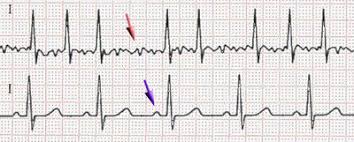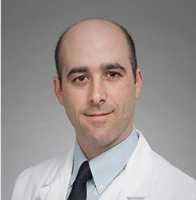Author Interviews, Lancet, MRSA, NIH / 18.01.2023
Specific Probiotic Dramatically Decreases Staph Aureus in the Gut
MedicalResearch.com Interview with:
Michael Otto PhD
Senior Investigator
Laboratory of Bacteriology
Chief of the Pathogen Molecular Genetics Section
NIAID, NIH
Bethesda, MD 20814
MedicalResearch.com: What is the background for this study?
Response: Staphylococcus aureus is one the of the most important causes of infectious diseases worldwide. It is known mostly for causing skin infections in the community and as a hospital-associated pathogen. It is in fact the most frequent cause of infections patients acquire in the hospital when they are weakened by underlying diseases or immune-suppressing therapy. The type of infections Staph can cause in these situations are diverse – comprising bone, lung, and blood infections (sepsis) - and can be quite severe and often fatal.
Except for moderately severe skin infections that may not require antibiotic treatment, treatment of Staph infections is by antibiotics. S. aureus has naturally been very responsive to penicillin-type antibiotics, but already in the mid of the last century, resistance to penicillin spread worldwide. Then, methicillin was invented to overcome this resistance, but nowadays there also is considerable spread of methicillin-resistant strains (MRSA).
The current situation is difficult for two reasons:
- First, S. aureus has become increasingly resistant to many antibiotics, and
- Second, the alternatives to methicillin are often by far not as efficient as penicillin/methicillin against Staph.













 Kazuo Kitagawa, MD PhD
Department of Neurology
Tokyo Women's Medical University
Tokyo, Japan
MedicalResearch.com: What is the background for this study? What are the main findings
Response: Reduction in blood pressure (BP) reduces the rates of recurrent stroke, but the optimum BP target remained unclear.
The results of RESPECT Study together with up-dated meta-analysis showed the benefit of intensive blood pressure lowering (<130/80 mmHg) compared with standard BP lowering (<140/90 mmHg).
Kazuo Kitagawa, MD PhD
Department of Neurology
Tokyo Women's Medical University
Tokyo, Japan
MedicalResearch.com: What is the background for this study? What are the main findings
Response: Reduction in blood pressure (BP) reduces the rates of recurrent stroke, but the optimum BP target remained unclear.
The results of RESPECT Study together with up-dated meta-analysis showed the benefit of intensive blood pressure lowering (<130/80 mmHg) compared with standard BP lowering (<140/90 mmHg). 















